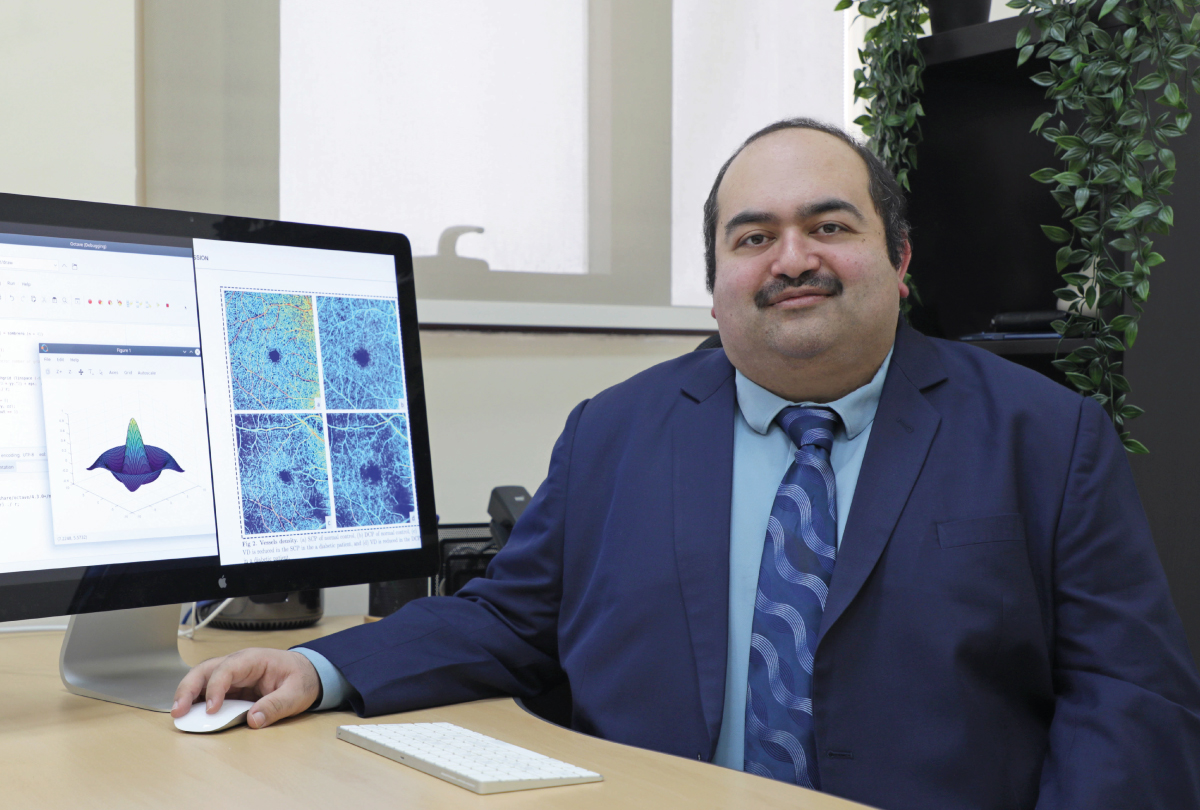
In the UAE, there are nearly 756,000 people diagnosed with diabetes and reports suggest that about 300,000 are undiagnosed. Diabetic retinopathy (DR) is a major complication of diabetes and can lead to vision loss if untreated. Innovative and comprehensive approaches are urgently needed to reduce the risk of vision loss by prompt diagnosis and early treatment of DR.
To address this issue, Al Jalila Foundation invested in a research study lead by Dr Mohammed Ghazal from Abu Dhabi University to develop a computer-aided diagnostic system for early assessment of retinopathy in diabetic patients.
Optical Coherence Tomography (OCT) and Optical Coherence Tomography Angiography (OCTA) are noninvasive imaging techniques that are widely used to diagnose and manage a variety of retinal diseases. The novel computer-aided diagnosis system for the early diagnosis and optimal management of diabetic retinal diseases uses OCT and OCTA scans.
This technology will revolutionise how scans are currently used and allow unbiased, standardised diagnosis of DR based on automated interpretation of OCT and OCTA scans. This will expand the use of these technologies from retina specialists to other community-based physicians to save all patients’ sight, regardless of their ability to see a specialist.
An unbiased automated system would significantly tailor the individual patient’s retinal disease treatment regimen to improve outcomes and minimise treatment costs. With this approach, ophthalmologists may accurately and objectively detect diabetic retinopathy promptly and possibly monitor its progression without needing the traditional subjective physical assessment that may lack sensitivity or precision.

